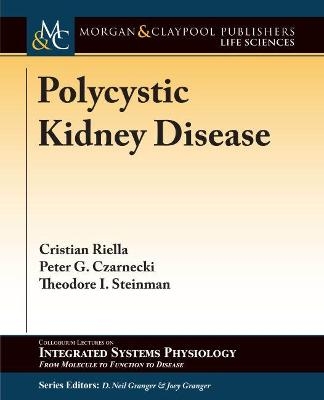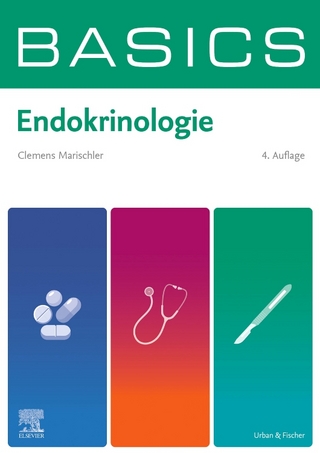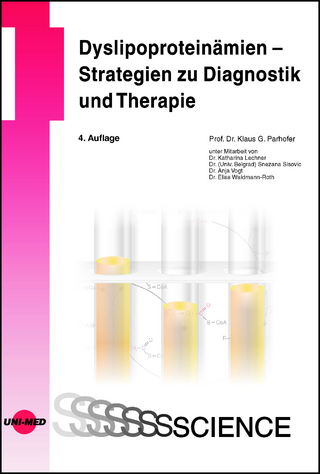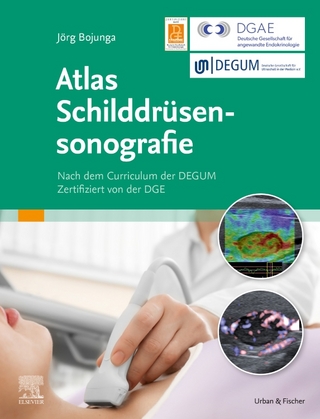
Polycystic Kidney Disease
Morgan & Claypool Publishers (Verlag)
978-1-61504-762-8 (ISBN)
This book reviews important aspects of polycystic kidney diseases, the latest scientific understanding of the diseases and syndromes, along with the therapies being developed. Cystic kidney diseases comprise a spectrum of genetic syndromes defined by renal cyst formation and expansion with variable extrarenal manifestations. The most prevalent disorder is the autosomal dominant polycystic kidney disease (ADPKD). It is the most common monogenetic disorder in humans and accounts for 4.4% of end-stage renal disease (ESRD) cases in the U.S. Patients inevitably progress to ESRD and require renal replacement therapy in the form of dialysis or transplantation. Through advancements in genomics and proteomics approaches, novel genes responsible for cystic diseases have been identified, further expanding our understanding of basic mechanisms of disease pathogenesis. The hallmark among all cystic genetic syndromes is the formation and growth of fluid-filled cysts, which originate from tubular epithelia of nephron segments. Cysts are the disease, and treatment strategies are being developed to target prevention or delay of cyst formation and expansion at an early stage, however no such therapy is currently approved.
Cristian V. Riella received his M.D. from Universidade Federal do Parana, Brazil in 2010. He then moved to Boston, for his post-graduate studies, where he completed training in internal medicine at Tufts University (2010-2013), followed by a clinical nephrology fellowship, at Beth Israel Medical Center (BIDMC), Harvard Medical School (2013-2015). He currently holds a position as Research Fellow at BIDMC. During his clinical training in nephrology, Dr. Riella had extensive exposure to polycystic kidney disease patients under the mentorship of Dr. Theodore Steinman, with whom he has published review articles and chapters on the subject. His main field of research is on inherited kidney diseases, focused on Apolipoprotein L1 (APOL1) genetic variants and its association with focal segmental glomerulosclerosis. Other interests include RNA sequencing, microRNA biology, computational biology and machine learning applications for biology research. Dr. Riella contributes actively to medical education as a tutor for the courses of Practice of Medicine and Renal Pathophysiology, Harvard Medical School. Peter Czarnecki earned his M.D. degree from the University of Freiburg in Germany, where he worked on biochemical interactions between nephronophthisis proteins in the laboratory of Gerd Walz. He moved to the Mayo Clinic, Rochester, MN, for his residency training in internal medicine and his fellowship in critical care medicine. At the Mayo Clinic, he continued his basic research on ciliopathies in the laboratory of Peter Harris. He came to the Beth Israel Deaconess Medical Center in Boston, MA, for his training in nephrology. He conducted clinical research in polycystic kidney disease under the mentorship of Ted Steinman, and he was a co-investigator on the HALT-PKD trials. At the same time, he pursued further basic research in ciliary biology with Jagesh Shah at Brigham and Women's Hospital, characterizing developmental signaling mechanisms in the ciliary Inversin Compartment. He took his first faculty position as Associate Physician in the Division of Renal Medicine at Brigham and Women's Hospital in 2014 and was appointed Instructor in Medicine at Harvard Medical School. He is member of the Harvard PKD center, continues his basic research in ciliary biology, and started a new subspecialty clinic for cystic and genetic kidney diseases at BWH. Dr. Theodore I. Steinman, a Philadelphia native and a 1956 graduate from Olney High School, received his undergraduate degree in 1960 from Penn State University (B.S. in Pre-Medicine) and his M.D. from Georgetown University School of Medicine in 1964. Internship and junior residency in Internal Medicine were at Cedars-Sinai Medical Center, Los Angeles, CA. Senior Internal Medicine residency was completed at Beth Israel Hospital, Boston in 1969, following a 2-year tour of duty in the U.S. Navy (1966-1968), serving one year in Vietnam as the battalion surgeon with a Marine infantry battalion. Advanced Nephrology Fellowship training was at Tufts New England Medical Center, Boston (1969-1971) under the leadership of Drs. William B. Schwartz and Jerome B. Kassirer. From there Dr. Steinman returned to Beth Israel Hospital in 1971 to found the dialysis and kidney transplantation programs, and was the Director of the programs for the next 31 years. Dr. Steinman is a Clinical Professor of Medicine, Harvard Medical School and a Senior Physician at both Beth Israel Deaconess Medical Center and Brigham and Woman's Hospital, Boston since 1993. Over the past 44 years he trained over 300 nephrology fellows, many in leadership positions around the world. Dr. Steinman has been actively engaged in research that started during his internship (1964). In 1970, he was one of the original investigators that started the national study, which lasted 11 years, on the diagnosis and treatment of Idiopathic Nephrotic Syndrome. Beginning in 1979 and continuing for 5 years he studied the therapeutic role of a very low protein, supplemented by keto-acid analogues, in patients with chronic kidney failure. This investigation resulted in the National Institutes of Health (NIH) multi-center seven-year study on this topic, and established the appropriate role of diet in those with chronic kidney disease. For the past 28 years Dr. Steinman's research focus has been in the area of Polycystic Kidney Disease, serving as a Principal Investigator for both the NIH HALT PKD Study and the Otsuka Tolvaptan Study. The HALT PKD Study was the longest and largest study ever conducted in patients with PKD. Current PKD research is aimed at stopping kidney cyst growth by use of a multi-targeted tyrosine kinase inhibitor. The most recent investigative endeavor is the use of stem cell technology to achieve cell reprogramming/regenerative medicine/bioenginerring of kidney tissue in PKD patients who are losing kidney function. Kidneys are being grown from fibroblasts obtained with a 2-mm skin biopsy-the first step in developing a kidney transplant model from one's own tissue. In addition, this technique is being used to develop ""clinical trials in a dish""-short circuiting years of clinical research by accelerating the disease process that can be rapidly studied in a laboratory setting.Dr. Steinman has been the author or co-author of 187 peer-reviewed publications, 51 book chapters and reviews, 146 proceedings, and 154 abstracts. He has been a national and international Visiting Professor at institutions throughout the U.S. and around the globe. In May 2015, he was invited to deliver the commencement address at the Pennsylvania State University graduation.
Introduction
Epidemiology
Molecular Basis of Disease
Clinical Manifestations
Clinical Management of PKD
Therapies
Summary and Conclusion
Bibliography
Author Biographies
| Erscheinungsdatum | 19.11.2017 |
|---|---|
| Reihe/Serie | Colloquium Series on Integrated Systems Physiology: From Molecule to Function |
| Mitarbeit |
Herausgeber (Serie): D. Neil Granger Ph.D., Joey P. Granger Ph.D. |
| Verlagsort | San Rafael |
| Sprache | englisch |
| Maße | 191 x 235 mm |
| Gewicht | 825 g |
| Themenwelt | Medizinische Fachgebiete ► Innere Medizin ► Endokrinologie |
| Medizinische Fachgebiete ► Innere Medizin ► Nephrologie | |
| Studium ► 1. Studienabschnitt (Vorklinik) ► Biochemie / Molekularbiologie | |
| Studium ► 1. Studienabschnitt (Vorklinik) ► Physiologie | |
| Naturwissenschaften ► Biologie ► Genetik / Molekularbiologie | |
| ISBN-10 | 1-61504-762-X / 161504762X |
| ISBN-13 | 978-1-61504-762-8 / 9781615047628 |
| Zustand | Neuware |
| Haben Sie eine Frage zum Produkt? |
aus dem Bereich


